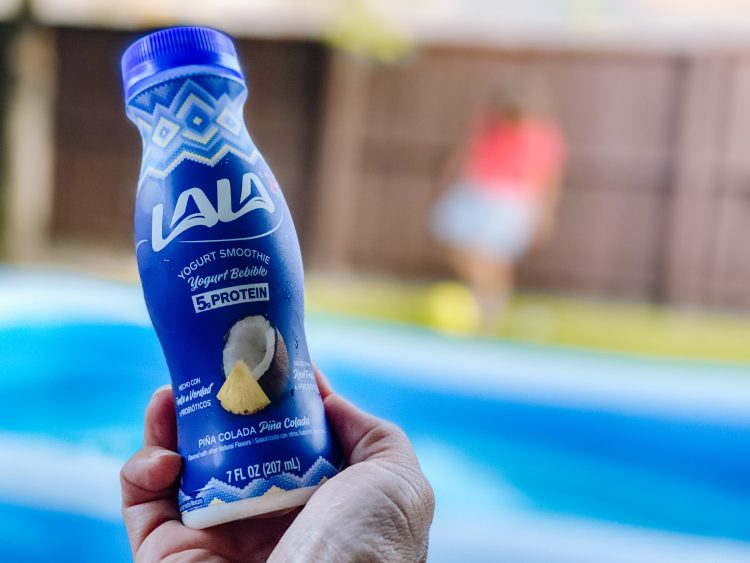
Who doesn’t love a good yogurt? They’re creamy, delicious, and packed with probiotics that are great for your gut health. Plus, they make for a quick and easy snack or breakfast on the go. But have you ever wondered how long yogurt could sit out before it goes bad? If so, you’re not alone. Here’s everything you need to know about keeping your yogurt fresh.
How Long Can My Yogurt Sit Out On The Counter?
Ideally, you should eat yogurt within two hours of taking it out of the fridge. After that, bacteria start to grow, and the yogurt begins to spoil. However, if you can’t eat it right away, there are some things you can do to prolong its shelf life.
To keep yogurt fresh for longer, put it in an airtight container and store it in the fridge. You can also freeze yogurt to extend its shelf life by up to two months. When freezing yogurt, be sure to leave enough headspace in the container so that it can expand as it freezes. Otherwise, your container might crack or burst.
If you freeze your yogurt, defrost it in the fridge overnight before eating it. Also, frozen yogurt will be thicker and icier than fresh yogurt. As such, it’s best suited for smoothies or baking rather than eating on its own.
Here’s a more specific breakdown, depending on the type of yogurt.

Plain Yogurt
If plain yogurt is left unrefrigerated, it can start to form bacteria growth and become unsafe to eat. Bacteria will begin to grow at temperatures above 40°F, so keeping plain yogurt refrigerated is vital. Once opened, it can last 7-10 days in the fridge. If you’re unsure if your yogurt has gone bad, give it a sniff—if it smells sour, then it’s time to toss it out.

Flavored Yogurt
Because flavored yogurts contain sugar, the bacterial growth process is slowed down. However, flavored yogurts should still be refrigerated and consumed within 7-10 days of being opened.

Yogurt Drinks
Just like regular yogurt, yogurt drinks can start to form bacteria once removed from refrigeration. To be on the safe side, don’t leave them out for more than 2 hours. Once opened, they should be consumed within five days.

How to Tell If My Yogurt Is Spoiled?
1. Check the sell-by date. This is the date that the store is supposed to remove the yogurt from its shelves. While yogurt can still be safe to eat after this date, it may not be at its peak freshness.
2. Inspect the packaging. If you see any signs of bulging, leaking, or otherwise damaged packaging, it’s best to err on caution and toss the yogurt.
3. Take a look at the color and consistency of the yogurt. Fresh yogurt should be thick and creamy with no signs of separation. If you see watery liquid pooling on top or severe separation, it’s probably time to say goodbye to your yogurt. Likewise, it’s best to avoid eating if the color has changed significantly or chunks are floating around.
4. Smell the yogurt. Yogurt that has gone bad will usually have a sour or rancid smell. If it smells off, it probably is, and you should discard it.
5. Know when to toss It. Certain types of yogurts— such as those made with fruits and vegetables—can start to spoil more quickly than others. So if you’re ever in doubt, err on caution and get rid of it.

What are The Risks of Eating Stale Yogurt?
Salmonella Poisoning
One of the most common risks of eating expired yogurt is salmonella poisoning. Salmonella is a type of bacteria that can cause food poisoning. Symptoms of salmonella poisoning include nausea, vomiting, diarrhea, and fever. Salmonella poisoning can lead to dehydration and even death if not treated promptly.

Listeria Infection
Another common risk of eating expired yogurt is a listeria infection. Listeria is a type of bacteria that can cause severe food poisoning. Symptoms of listeria infection include fever, muscle aches, and diarrhea. Listeria infection can lead to meningitis, miscarriage, and even death if not treated promptly.

Gastroenteritis
Gastroenteritis is another common complication associated with eating expired yogurt. Gastroenteritis is an inflammation of the stomach and intestines that can cause vomiting, diarrhea, and abdominal pain. If not treated promptly, gastroenteritis can lead to dehydration and even death.

Yeast Infections
Finally, one of the less severe but still unpleasant risks associated with eating expired yogurt is yeast infections. Yeast infections are caused by the overgrowth of Candida Albicans, a type of yeast that usually lives in small numbers in the digestive tract. Symptoms of a yeast infection include itching, burning, and vaginal discharge. While yeast infections are not typically life-threatening, they can be very uncomfortable.
So while that expires tomorrow, yogurt may be tempting, but it is essential to remember the risks associated with eating it. If you choose to eat expired yogurt, watch for any signs or symptoms of food poisoning and see your doctor immediately if you develop any problems.

How Do I Store Yogurt Properly?
Check the expiration date before you buy yogurt.
You might think that all yogurt is created equal, but that’s not the case. Just like any other food product, yogurt has an expiration date. So when you’re at the store, check the expiration date before putting it in your cart. Otherwise, you might end up with sour yogurt that’s no good to eat.
Store yogurt in the fridge.
This one seems a no-brainer, but you’d be surprised how many people don’t do it. Yogurt must be stored in the fridge, so it doesn’t go bad. If you leave it out on the counter, it will spoil quickly, and you’ll have to throw it away. So save yourself the trouble and put it in the fridge as soon as you get home from the store.
Make sure the lid is on tight.
Another common mistake people make is not sealing their yogurt tightly enough. If the lid isn’t on tight, air can get in and spoil the yogurt. So before putting your yogurt away, ensure the lid is screwed on tightly. This will help keep your yogurt fresh for longer.
Don’t freeze yogurt unless you’re going to use it for cooking.
You might be tempted to store your yogurt in the freezer so that it lasts even longer, but this is a mistake. Freezing yogurts can change their texture and make them less enjoyable to eat. So unless you’re planning on using frozen yogurt for cooking or baking, it’s best to keep it in the fridge where it belongs.

Can I Store My Yogurt Without Refrigeration?
The answer is yes! You can use a few different methods to keep your yogurt fresh and delicious without storing it in a fridge.
One option is to freeze your yogurt.
This will require some planning, but it’s a great way to keep your yogurt fresh for a more extended period. Place your yogurt in an airtight container and pop it in the freezer. When you’re ready to eat it, remove it from the container and allow it to thaw at room temperature for a few hours.
Another option is to store your yogurt in a cooler with ice packs.
This is ideal for taking yogurt with you on the go, whether going on a hike or heading to the beach for the day. Pack your yogurt in an insulated bag or container with some ice packs, and you’ll be good to go!
The third option is to make yogurt popsicles.
This is an excellent option if you have kids, but let’s be honest, we all love yogurtsicles! Pour your favorite flavor of yogurt into popsicle molds and freeze. Once they’re frozen solid, enjoy!
Yogurt’s Unique Flavors and Benefits
There are many different types of yogurt available on the market today. The most common are cow’s milk yogurt, goat’s, and soy milk yogurt. Each type of yogurt has its unique flavor and health benefits.
Cow’s Milk Yogurt
The most popular type of yogurt among Americans. It is made from cow’s milk that has been pasteurized and then fermented with live bacteria. Cow’s milk yogurt is a good protein, calcium, phosphorus, vitamin B12, and potassium source.
Goat’s Milk Yogurt
Another type of yogurt is becoming more popular in the United States. Goat milk is easier to digest than cow’s milk because it contains less lactose. Goat’s milk also contains more vitamins A, B6, C, and E than cow’s milk.
Soy Milk Yogurt
A good choice for people who are vegan or have lactose intolerance. Soy milk is made from soybeans ground into a fine powder and then mixed with water. The soy powder is fermented with live bacteria to create soy milk yogurt. Soy milk yogurt contains no cholesterol or saturated fat and is a good protein, fiber, calcium, and iron source.

Nutritional Facts of Yogurt
1. Calcium – One cup of plain yogurt contains about 20% of the Recommended Daily Intake (RDI) for calcium. This mineral is essential for strong bones and teeth. It also helps with muscle contraction and blood clotting.
2. Protein – Yogurt is an excellent source of protein. One cup of plain yogurt contains about 10 grams of protein. Protein is essential for cell growth and repair and for making enzymes and hormones.
3. Vitamins B2 and B12 – Yogurt is a good source of the B vitamins riboflavin (B2) and cobalamin (B12). These nutrients play essential roles in energy metabolism and red blood cell production.
4. Probiotics – Probiotics are live bacteria beneficial to gut health. They can help improve digestion and prevent diarrhea and other gastrointestinal problems.
5. Contains Other Nutrients – In addition to the nutrients listed above, yogurt contains potassium, magnesium, phosphorus, zinc, copper, selenium, manganese, and sodium.

Health Benefits of Yogurts
1. May Help Boost the Immune System – Some research suggests that consuming probiotic-rich foods like yogurt may help strengthen the immune system. However, more research is needed to confirm these effects.
2. May Aid in Weight Loss – Some studies suggest probiotic-rich foods like yogurt may help promote weight loss. Probiotics may help reduce body fat by increasing satiety (fullness) and preventing fat absorption.
3. May Reduce the Risk of Osteoporosis – Some research suggests that consuming adequate amounts of calcium and vitamin D may help reduce the risk of osteoporosis. Yogurt is a good source of both nutrients.
4. May Improve Digestion – Probiotics may help improve digestion by reinforcing the barrier between the gut and the bloodstream, which helps prevent harmful bacteria from entering the bloodstream. Additionally, they can help increase stool frequency in people who suffer from constipation.
5. May Help Lower Blood Pressure – Some observational studies suggest that consuming probiotic-rich foods like yogurt may help lower blood pressure. However, more research is needed to confirm these effects.
6. Is Linked to a Reduced Risk of Cancer – Some population studies suggest that consuming fermented dairy products like yogurt may be linked to a reduced risk of several types of cancer, including ovarian, bladder, prostate, and stomach cancer, colorectal cancer, and breast cancer. However, it’s important to remember that these studies only show an association; they cannot prove cause and effect.

Other Types of Yogurt
Greek Yogurt
Greek yogurt is made by straining out the whey from traditional yogurt. This makes it thicker and higher in protein than regular yogurt. Greek yogurt also has less lactose, a sugar found in milk products. This makes it a good choice for people who are lactose intolerant. Greek yogurt generally has live probiotics, but some brands add them after fermentation, so they don’t count as live cultures anymore.

Skyr
Skyr is a type of Icelandic yogurt that is similar to Greek yogurt. It is thick and creamy with high protein content. Skyr is also lower in lactose than regular yogurt and often contains live probiotics. However, not all skyr yogurts are created equal. Some brands add fruits and sweeteners to their skyr, increasing sugar content. So, be sure to read the label before you buy.

Traditional Yogurt
Traditional yogurt is made by fermenting milk with live bacteria cultures. It has a thinner texture than Greek or skyr yogurt and generally contains more sugar because the whey isn’t strained out. However, traditional yogurt still has some health benefits because it contains live probiotics. Just be sure to choose a brand that doesn’t add too much sugar or artificial flavors.

Yogurt Drinks
Yogurt drinks typically have less protein than traditional yogurts because they are made with skim milk instead of whole milk. They also generally have more sugar because they often contain fruit juices or other sweeteners. In addition, yogurt drinks usually don’t contain live probiotics unless specifically labeled. So, if gut health is your goal, you’re better off sticking to traditional yogurt or skyr yogurt.

Fat-Free Yogurt
Fat-free yogurts are made with skim milk and contain no fat whatsoever. They are usually lower in calories than regular yogurts but often have more sugar to compensate for the lack of fat flavor. Fat-free yogurts generally don’t contain live probiotics unless they are labeled as such.

Final Thoughts
Overall, yogurt is a healthy food choice with many benefits. However, it’s important to know how long yogurt can sit out. Yogurt is a dairy product; like all dairy products, it can spoil if it’s not stored correctly. So, if you’re planning on taking your yogurt with you on the go, pack it in a cooler with ice packs. And, as always, be sure to check the expiration date before you eat it.
Frequently Asked Questions (FAQs)
Is it safe to eat yogurt left out overnight?
Yogurt that has been left out at room temperature for longer than two hours should be thrown away, as stated by the US Department of Health & Human Services. You only have one hour to eat that yogurt left out of the refrigerator, especially when the temperature is above 90 degrees Fahrenheit.
How fast does yogurt go bad?
Every type of yogurt lasts up to a week after the expiration date on the label. Any leftovers must be used within five to seven days of opening. It's better to consume yogurt that has passed its expiration date immediately after opening.
Can unopened yogurt be stored at room temperature?
Yogurt should not be exposed to room temperature for more than two hours. This indicates that yogurt's maximum shelf life outside a refrigerator is two hours. So, even after spending more than two hours outside of the fridge, the yogurt may not appear that awful.
Can you get food poisoning from yogurt?
Most yogurt-related food poisoning symptoms include digestive discomfort, such as diarrhea. The usual causes of food poisoning because of yogurt include mold, slow-growing bacteria, or microbes introduced to the yogurt via additional components.




